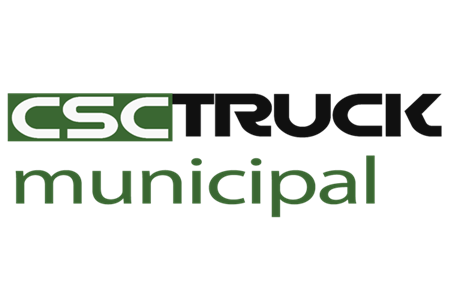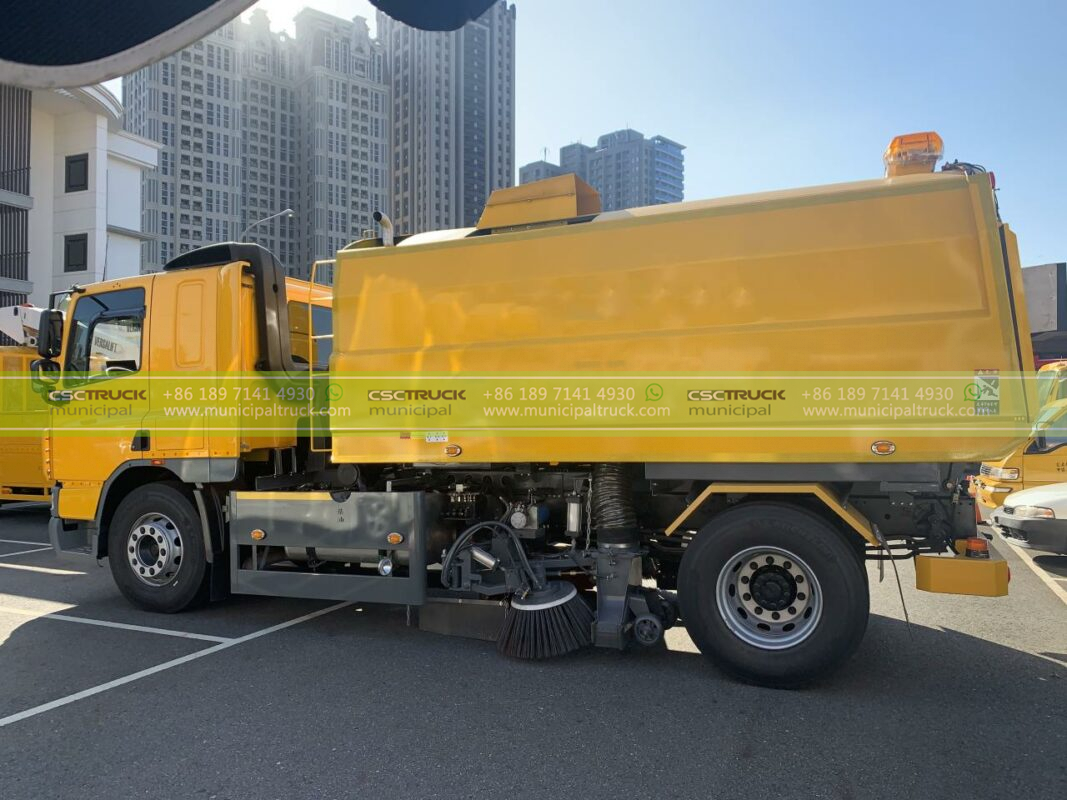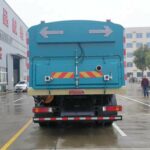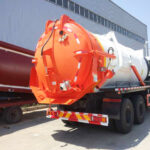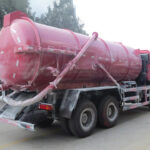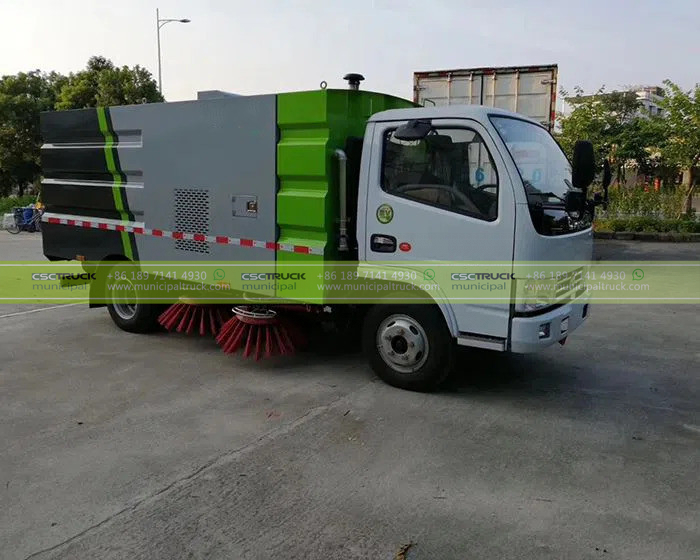Strategic Infrastructure Rehabilitation in Post-Conflict Zones
As Iraq intensifies national reconstruction efforts following decades of instability, Basra has initiated a transformative urban rehabilitation project with the deployment of 18 cutting-edge combined sweeper jetter trucks supplied through a $5.3 million partnership between CSCTRUCK Municipal and Mesopotamia Heavy Industries, Iraq’s leading civil engineering consortium. This strategic intervention addresses critical deficiencies in municipal sanitation capabilities across Basra’s war-damaged districts—where an estimated 45% of stormwater channels remain obstructed by conflict debris and sediment accumulation—directly supporting Iraq’s 2030 Sustainable Cities Framework.
The newly operational fleet, positioned ahead of the hazardous summer sandstorm season, targets priority zones including Al-Tanuma and Al-Ashar, where compromised drainage systems have exacerbated public health risks. Unlike conventional cleaning units, these multifunctional vehicles integrate synchronized mechanical sweeping and high-pressure hydro-jetting, enabling simultaneous removal of surface rubble and subsurface pipeline blockages at unprecedented speeds of 2.8 km/hour per operational cycle. “This technology transforms our capacity to rehabilitate neglected infrastructure,” stated Basra Governor Ahmed Al-Farsi during the handover ceremony, underscoring the fleet’s projected impact: reducing flood response times by 68% and restoring functionality to 300 km of drainage networks within 12 months.
Engineering Innovation for Complex Urban Environments
Integrated Debris Management System
Specifically engineered for Iraq’s extreme operating conditions—from airborne sand particulates to hardened sediment deposits—the CSCTRUCK Scorpion-9X Sweeper Jetters incorporate three synchronized subsystems:
- Cyclonic vacuum sweepers with 5,500 Pa suction capacity for rapid collection of bulky conflict debris
- Variable-pressure water jetting arrays (adjustable from 800–4,200 PSI) capable of dissolving petroleum-contaminated sludge in industrial zones
- Onboard wastewater filtration enabling 95% water reuse during extended operations—critical in Iraq’s arid climate
This integrated configuration eliminates the need for multiple specialized vehicles, generating an estimated $1.7 million in annual operational savings while navigating Basra’s partially reconstructed streets. The trucks’ reinforced chassis and desert-rated cooling systems further ensure functionality in 54°C ambient temperatures—a decisive improvement over previous international donations that failed under local conditions.
Digital Integration for Precision Rehabilitation
Beyond mechanical robustness, the fleet introduces predictive maintenance capabilities through CSCTRUCK’s NileTrack telematics platform, which overlays conflict damage assessments from the World Bank’s Basra Reconstruction Atlas. Real-time sensors monitor pipeline integrity during hydro-jetting operations, automatically reducing pressure near structurally compromised sections identified in pre-war municipal surveys. “Legacy infrastructure mapping combined with conflict damage data allows surgical precision,” explained CSCTRUCK’s Middle East Director Karim Al-Zubaydi. “Operators now differentiate between routine clogs and potentially destabilizing interventions near fragile foundations.”
Localized Capacity Building and Regional Implications
The CSCTRUCK-Mesopotamia collaboration establishes Iraq’s first domestic assembly line for specialized municipal vehicles at the rehabilitated Khor Al-Zubair port industrial zone. Slated for full operation by Q2 2026, this facility will integrate German-engineered hydraulic systems with locally manufactured chassis components, simultaneously reducing import costs by 40% and transferring advanced manufacturing expertise to 120 Iraqi technicians currently undergoing certification. Crucially, the production model incorporates modular designs allowing reconfiguration into sprinkler truck variants for dust suppression during sandstorms—a feature already incorporated into the current sweeper jetter fleet for dual-purpose operations.
Field trials demonstrate transformative applications:
- Conflict residue mitigation: Neutralizing particulate-heavy rubble dust in residential areas through integrated sprinkler modes
- Emergency response versatility: Rapid conversion into high-capacity water jetting trucks during flash flood scenarios
- Resource optimization: Onboard solar panels providing 30% auxiliary power for extended desert deployments
“The modularity ensures long-term relevance beyond immediate cleanup,” emphasized Mesopotamia CEO Layla Abbas, noting that contractual provisions reserve 40% of future production for neighboring governorates. With Phase 2 planning already underway for Mosul and Fallujah deployments, this initiative signals a strategic shift from temporary humanitarian solutions toward sovereign technological capacity in Iraq’s reconstruction era—setting precedents for conflict recovery programs across the Levant.
This project aligns with Iraq’s National Development Plan 2025–2030, prioritizing integrated water management across 8 high-risk cities. CSCTRUCK Municipal confirms parallel negotiations with Jordan and Lebanon for customized variants addressing regional water scarcity challenges.
